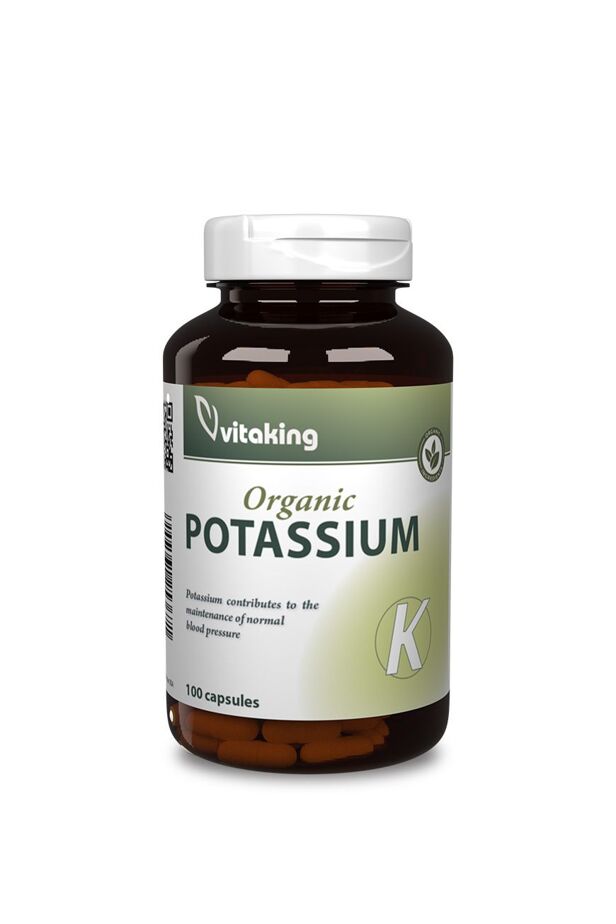Potassium - 100
Delivery time: 3 - 5 business days
Description
Potassium is an essential mineral for the body. Increased sweating and sometimes spring-fed diets cause potassium deficiency primarily in women, some of whom have levels that prevent sweating. The problem can be easily treated by taking 1000mg of potassium per day or consuming foods high in potassium.
Vitaking Potassium for normal blood pressure
Potassium (potassium) is the third most abundant mineral in the body, calcium and phosphorus, which is predominantly present inside cells and plays an important role in their normal functioning. Together with sodium, the body transmits nervous system signals, initiates muscle contraction, regulates blood pressure and heart rate, and absorbs nutrients from cells.
When does potassium deficiency develop?
Potassium deficiency develops mainly in women as a result of increased sweating and sometimes spring diets. For some, this is at a level that prevents sweating. Lack of strong diuretics may occur during taking or when diarrhea or vomiting. This can lead to muscle weakness or nausea. The problem can be easily treated by taking 1000mg of potassium per day or by consuming foods high in potassium (e.g., potatoes, tomatoes, green vegetables). A potassium-rich diet has a beneficial effect on blood pressure and can also reduce high blood pressure. Fresh fruits or vegetables, such as bananas and oranges, contain large amounts. Red meats, poultry, milk and yogurt are also rich sources of potassium.
If someone drinks too much coffee, the fatigue they are struggling with may be caused by the potassium loss they have suffered. Because coffee, alcohol, sugar, and diuretics are the enemies of potassium, they are expelled from the body. Anyone who consumes such things should pay close attention to proper potassium intake. Because potassium contributes to normal muscle function, athletes or those who do physical work are strongly advised to supplement it properly.
Proven effects of potassium:
- It contributes to the proper functioning of the nervous system.
- It contributes to normal muscle function.
- It is involved in maintaining normal blood pressure.



